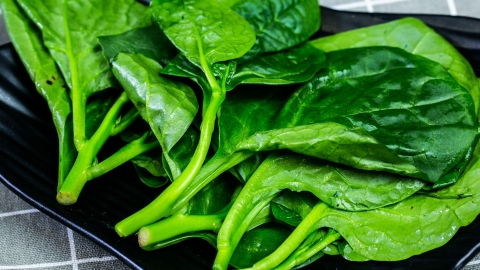Can cowpeas and Malabar spinach be eaten together?
Generally speaking, cowpeas and Malabar spinach can be consumed together, but excessive consumption should be avoided. The specific analysis is as follows:

Cowpeas are rich in protein, vitamin C, and dietary fiber, whereas Malabar spinach contains abundant iron, calcium, and various vitamins. Combining these two ingredients can complement their nutritional profiles, enhancing the overall nutritional value. Additionally, the crisp tenderness of cowpeas paired with the smooth, refreshing texture of Malabar spinach creates a unique sensory experience, enhancing the flavor of dishes.
However, excessive consumption of both high-fiber cowpeas and Malabar spinach may increase the gastrointestinal burden, potentially causing symptoms such as abdominal bloating and diarrhea. This is especially important for individuals with weak gastrointestinal function or digestive system disorders to pay attention to moderate intake and monitor their body's response. Moreover, if allergic reactions to cowpeas or Malabar spinach exist, they should be avoided to prevent allergic symptoms such as rashes and difficulty breathing.
In daily life, maintaining a balanced diet and diversifying the intake of various vegetables helps maintain good health.







